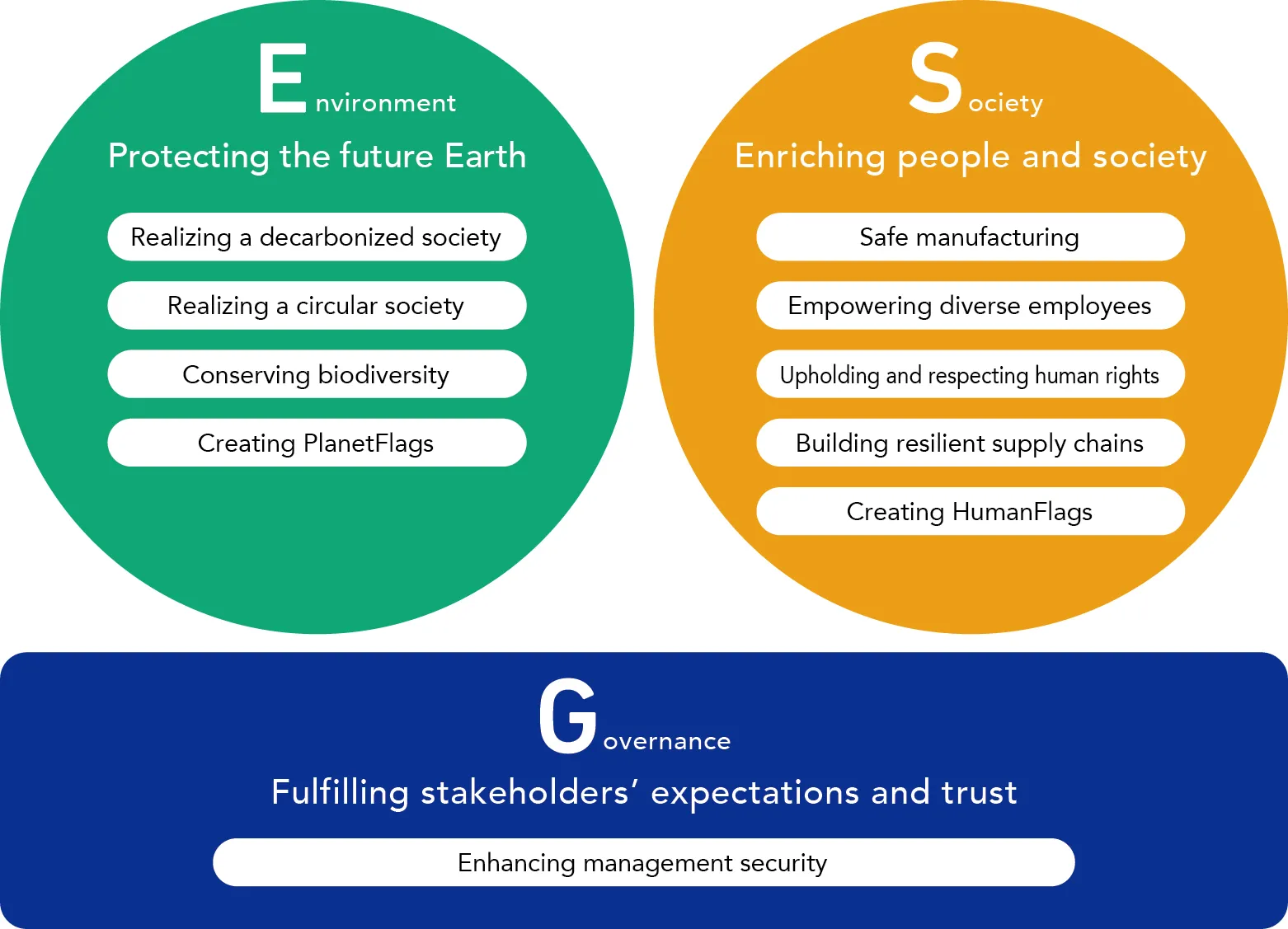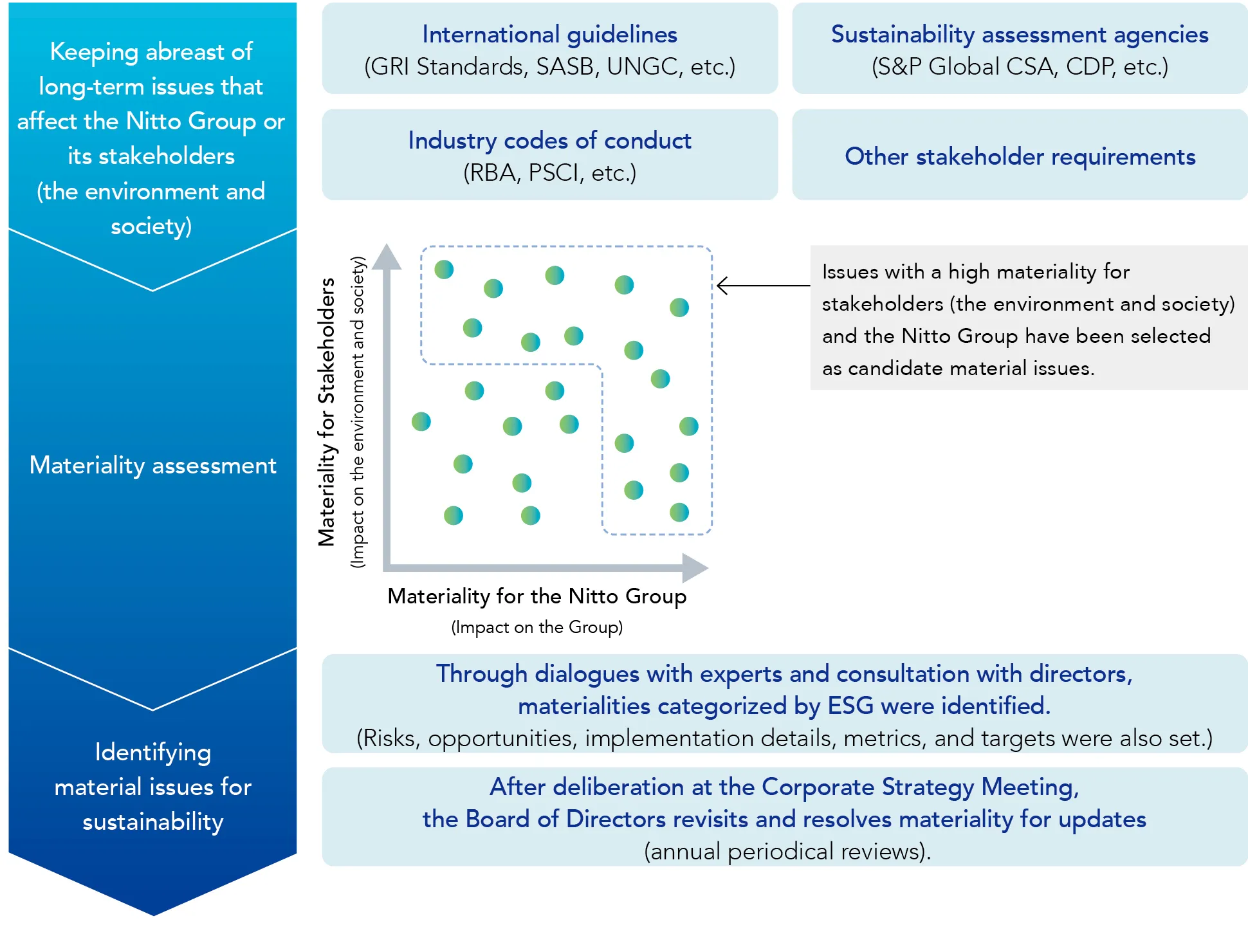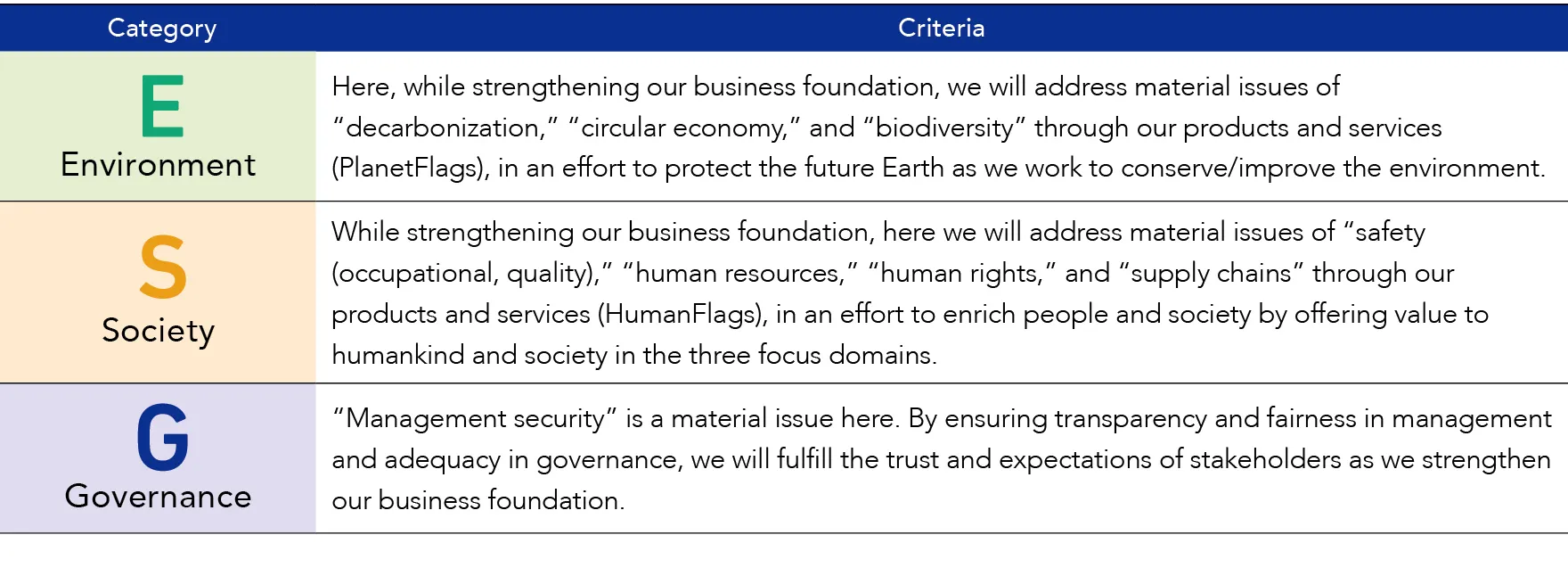In 2019, the Nitto Group identified its material issues for sustainability (materiality) in a bid to simultaneously solving social issues and creating economic value. Amid the changing external environment with sustainability and ESG (Environment, Society, and Governance) assuming growing importance worldwide, the Nitto Group announced that it would place ESG at the core of its management. Accordingly, the Group revisited its material issues for sustainability in order to become an “essential” entity for the global environment, humankind, and society, as well as the general public, further driving sustainable growth.

These material issues have been selected and identified as such from issues deemed important as they might affect the company and its stakeholders (the environment and society) over the long term. In implementing them, we identify risks and opportunities associated with each issue and reflect them in our business plans.


| Material Issues for Sustainability | Risks | Opportunities | Implementation Details | KPIs / Targets for FY2030 |
|---|---|---|---|---|
| Realizing a decarbonized society |
|
|
Reduction in GHG emissions | CO2 emissions: 400 kton/year |
| Realizing a circular society |
|
|
Promotion of cyclic use of raw materials, energy, and waste |
Waste plastics recycling ratio: 60% Sustainable materials procurement ratio: 30% |
| Conserving biodiversity |
|
|
Prevention of air, water, and soil pollution | * Managing by internal KPIs |
| Creating PlanetFlags |
|
|
Providing solutions for decarbonization and material-circulation solutions Providing nature-positive products |
PlanetFlags and HumanFlags category sales ratio: over 50% |
| Material Issues for Sustainability | Risks | Opportunities | Implementation Details | KPIs / Targets for FY2030 |
|---|---|---|---|---|
| Safe manufacturing |
|
|
Improvement of workplace environment Enhancement of safety and quality of products |
* Managing by internal KPIs |
| Empowering diverse employees |
|
|
Hiring and development of personnel daring to take on challenges Promotion of DE&I |
Female leaders ratio: 30% Engagement scores: 85 Challenge ratio: 85% |
| Upholding and respecting human rights |
|
|
Promotion of human rights due diligence | * Managing by internal KPIs |
| Building resilient supply chains |
|
|
Sustainable procurement practices | * Managing by internal KPIs |
| Creating HumanFlags |
|
|
Providing products that promote digital society Providing products that ensure comfort and security of life Providing products that support sound and healthy life |
PlanetFlags and HumanFlags category sales ratio: over 50% |
| Material Issues for Sustainability | Risks | Opportunities | Implementation Details | KPIs / Targets for FY2030 |
|---|---|---|---|---|
| Enhancing management security |
|
|
Ensuring compliance Creation of a safety/quality-oriented culture Promotion of information security management |
* Managing by internal KPIs |